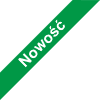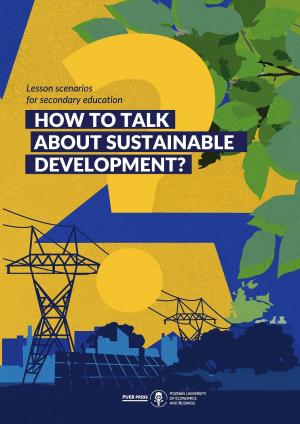Redakcja naukowa
Magdalena Śliwińska
How to talk about sustainable development? Lesson scenarios for secondary education
Dostępność i zakup
Wersja elektroniczna(IBUK)Wersja elektroniczna
(CEEOL)
*Kliknięcie przycisku powoduje przeniesienie na zewnętrzną platformę udostępniania lub sprzedaży.
Książka jest dostępna w subskrypcjach bibliotecznych: Ibuk Libra i EBSCO.
Śliwińska, M. (red.). (2024). How to talk about sustainable development? Lesson scenarios for secondary education. Wydawnictwo Uniwersytetu Ekonomicznego w Poznaniu. https://doi.org/10.18559/978-83-8211-246-7
Publication How to talk about sustainable development? Lesson scenarios for secondary schools is designed to support teachers who want to discuss topics related to the transformation of the socio-economic system towards sustainability with their students. The book presents a wide range of issues, so that young people will have the opportunity to gain knowledge in different areas of this complex field: green and digital transformation, responsible food consumption, circular economy, idea of zero waste. The authors emphasise that everyone can contribute to the necessary change and point out the available ways. Each scenario is structured according to the same scheme to facilitate the preparation and conduct of lessons: it begins by defining the objectives of the lesson, methods and forms of work, key concepts and supporting materials that can be used during the lesson. Next, the proposed course of the lesson is described. At the end of each scenario there are sources and useful links, as well as supporting materials ready for use during the lesson.
Publication co-funded from Jean Monnet Resilient and transforming Europe TRANSFORM EU project.
Introduction (Ida Musiałkowska, Magdalena Śliwińska)
General guidelines (Magdalena Śliwińska, Ida Musiałkowska)
Lesson scenarios:
1. The European Green Deal – the path to climate neutrality (Judyta Cabańska, Grzegorz Mazur)
2. Competences of the future – what we need to be able to do on the labour market taken over by AI (Dorota Czyżewska-Misztal, Piotr Idczak)
3. Sustainable food – the “Farm to Fork” strategy (Piotr Idczak, Joanna Witczak, Dorota Czyżewska-Misztal)
4. How to become a responsible consumer – the role of sustainable development certifications (Magdalena Śliwińska)
5. Circular economy – how to extend the product life cycle (Piotr Idczak, Łukasz D. Wróblewski)
6. Zero waste – let’s not WASTE the planet! (Judyta Cabańska, Dorota Czyżewska-Misztal, Joanna Witczak, Maria Sielicka-Różyńska)


Metadane
- ISBN: 978-83-8211-246-7
- e-ISBN:
- DOI: 10.18559/978-83-8211-246-7
- Wydanie: I
- Rok wydania: 2024
- Rok premiery: 2024
- Strony: 60
- Wersja papierowa:
- Wersja elektroniczna: pdf
- Format: B5
- Licencja: open access
zrównoważony rozwój, zachowania konsumentów, cykl życia produktu, rynek pracy, edukacja
sustainable development, consumers behavior, product life cycle, labour market, education
ostatni tydzień: 10
ostatnie 3 miesiące: 143
ogółem: 1014



 Pełna wersja do pobrania (pdf)
Pełna wersja do pobrania (pdf)